Planet Neptune, Observed By The Voyager 2 Space Probe, August 25, 1989.

Planet Neptune, observed by the Voyager 2 space probe, August 25, 1989.
(NASA)
More Posts from Xyhor-astronomy and Others
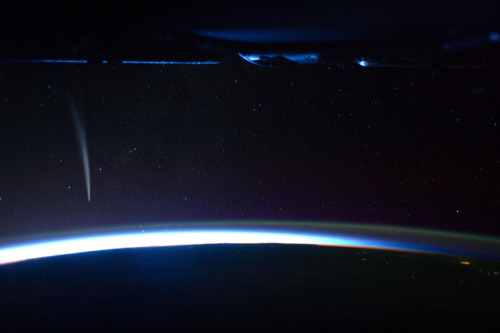
Comet Lovejoy is visible near Earth’s horizon in this nighttime image photographed by NASA astronaut Dan Burbank, Expedition 30 commander, onboard the International Space Station on Dec. 21, 2011.
Image credit: NASA
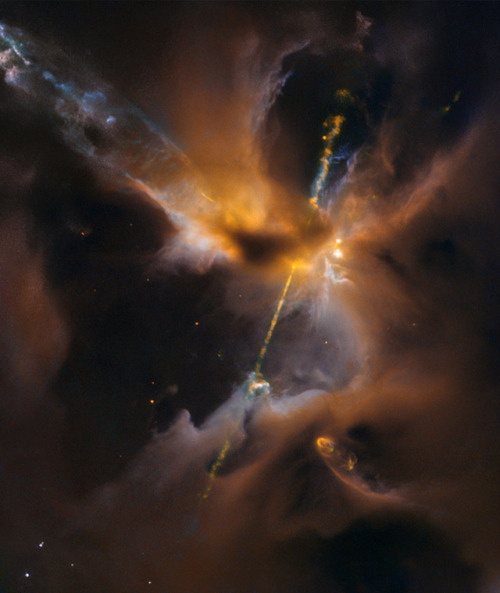
Hubble Sees the Force Awakening in a Newborn Star
This celestial lightsaber does not lie in a galaxy far, far away, but rather inside our home galaxy, the Milky Way. It’s inside a turbulent birthing ground for new stars known as the Orion B molecular cloud complex, located 1,350 light-years away.
In the center of the image, partially obscured by a dark, Jedi-like cloak of dust, a newborn star shoots twin jets out into space as a sort of birth announcement to the universe
Credit: NASA/ESA
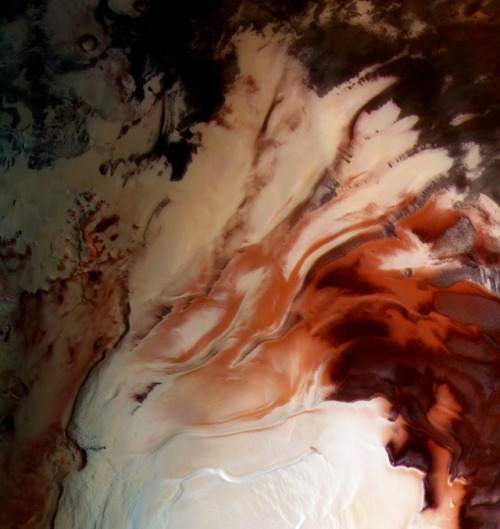
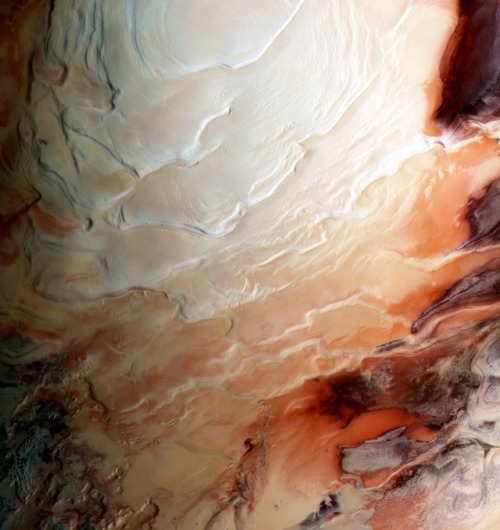
Martian North Pole
ESA / G. Neukum (Freie Universitaet, Berlin) / Bill Dunford
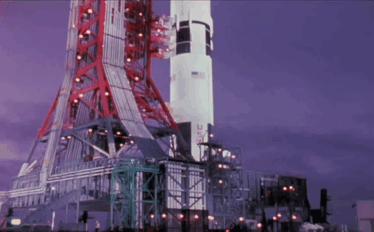
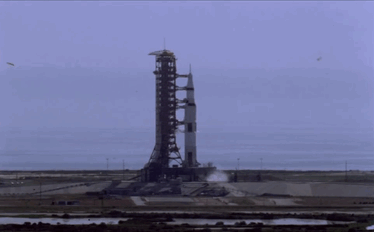
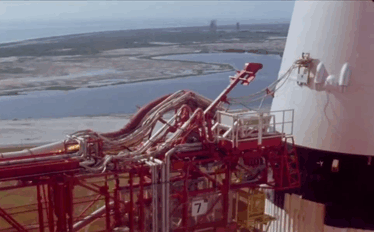
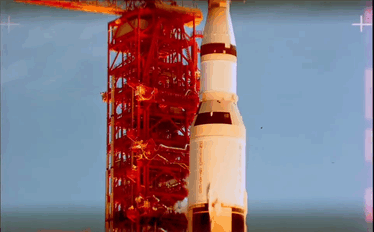
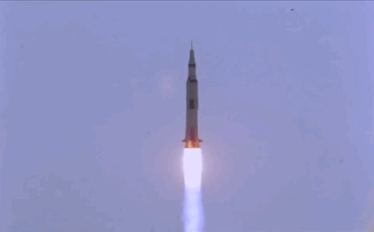
Apollo 11 Launch

An irregular island
This image, courtesy of the NASA/ESA Hubble Space Telescope’s Advanced Camera for Surveys (ACS), captures the glow of distant stars within NGC 5264, a dwarf galaxy located just over 15 million light-years away in the constellation of Hydra (The Sea Serpent).
Dwarf galaxies like NGC 5264 typically possess around a billion stars — just one per cent of the number of stars found within the Milky Way. They are usually found orbiting other, larger, galaxies such as our own, and are thought to form from the material left over from the messy formation of their larger cosmic relatives.
NGC 5264 clearly possesses an irregular shape — unlike the more common spiral or elliptical galaxies — with knots of blue star formation. Astronomers believe that this is due to the gravitational interactions between NGC 5264 and other galaxies nearby. These past flirtations sparked the formation of new generations of stars, which now glow in bright shades of blue.
https://www.spacetelescope.org/images/potw
The NASA Village
Today in the NASA Village… Making More with Less

Stacey Boland works at NASA’s Jet Propulsion Laboratory (JPL) on missions that use remote sensing instruments for Earth observation. From space, we can learn so much about our changing environment here on Earth.
Maximizing science research requires finding creative and cost effective ways to do it! Her team developed the ISS-RapidScat instrument using left over equipment NASA had in storage from a program launched in the 1990’s. ISS-RapidScat is an external payload mounted to the outside of the Columbus module, part of the International Space Station. ISS-RapidScat measures ocean wind speed and direction to help track tropical cyclones and hurricanes. Stacey’s team was able to get a functioning piece of hardware for about a tenth the cost of a traditional “small” Earth science mission.
Stacey said, “It wasn’t easy, but it was worth it! Working in the space program doesn’t require perfection - but it does require passion and hard work! We work as a team here at NASA and everyone’s role is important. We rely on each other to do our best, regardless of what part of the mission is “ours.” All the parts need to work together for it to be a success and that takes teamwork and good communication!”
Stacey’s story represents how being creative in the NASA Village can really make a difference!

Where did Stacey get her hunger for space? “When I was growing up, my dad and I would learn about each shuttle mission and then watch launches on TV together. It was fun learning about science and exploration together. Now, as a parent, I’m continuing on that tradition with my son”
“I was able to watch the SpaceX-4 launch in person with my mom, dad, husband, and son”, Stacy said. “It was absolutely incredible to share that experience with them. My son still talks about it and has been practicing drawing rockets ever since. He often asks when we can go back to Florida to see another one!”
Experiencing a rocket launch in person is amazing. Feeling the sound waves from the engines push against your body is quite a rush. And when it is hardware you helped create, on its way into space, it makes that experience even more special.
Next time on the NASA Village… A visit to the NASA Village inspires a lifelong career.
Do you want more stories? Find our NASA Villagers here!

The Extraordinary Core of a Neutron Star
Lucy Reading-Ikkanda/Quanta Magazine; Source: Feryal Özel

This stunning multi-mission picture shows off the many sides of the supernova remnant Cassiopeia A. It is made up of images taken by three of NASA’s Great Observatories, using three different wavebands of light. Infrared data from the Spitzer Space Telescope are colored red; visible data from the Hubble Space Telescope are yellow; and X-ray data from the Chandra X-ray Observatory are green and blue.
Image credit: NSA/JPL
-
 sleepy-jabberwocky liked this · 7 months ago
sleepy-jabberwocky liked this · 7 months ago -
 three6mothra reblogged this · 1 year ago
three6mothra reblogged this · 1 year ago -
 catsneezee reblogged this · 2 years ago
catsneezee reblogged this · 2 years ago -
 aseguuul reblogged this · 2 years ago
aseguuul reblogged this · 2 years ago -
 delicatexwishes reblogged this · 2 years ago
delicatexwishes reblogged this · 2 years ago -
 ghost-in-a-wasteland liked this · 4 years ago
ghost-in-a-wasteland liked this · 4 years ago -
 6452352 liked this · 4 years ago
6452352 liked this · 4 years ago -
 myheavens2betsy liked this · 5 years ago
myheavens2betsy liked this · 5 years ago -
 marvelenthusiast10 reblogged this · 5 years ago
marvelenthusiast10 reblogged this · 5 years ago -
 marvelenthusiast10 liked this · 5 years ago
marvelenthusiast10 liked this · 5 years ago -
 trustfundmuse reblogged this · 5 years ago
trustfundmuse reblogged this · 5 years ago -
 trustfundmuse reblogged this · 6 years ago
trustfundmuse reblogged this · 6 years ago -
 daintydreams reblogged this · 6 years ago
daintydreams reblogged this · 6 years ago -
 artkee liked this · 6 years ago
artkee liked this · 6 years ago -
 saltedyolk liked this · 6 years ago
saltedyolk liked this · 6 years ago -
 manyittie reblogged this · 6 years ago
manyittie reblogged this · 6 years ago -
 pegasusgoat liked this · 6 years ago
pegasusgoat liked this · 6 years ago -
 shimrn liked this · 6 years ago
shimrn liked this · 6 years ago -
 lightherald reblogged this · 6 years ago
lightherald reblogged this · 6 years ago -
 fruniture reblogged this · 6 years ago
fruniture reblogged this · 6 years ago -
 ocelotlwinter liked this · 7 years ago
ocelotlwinter liked this · 7 years ago -
 principalcellist liked this · 7 years ago
principalcellist liked this · 7 years ago -
 comatose-joy reblogged this · 7 years ago
comatose-joy reblogged this · 7 years ago -
 ozcan71 liked this · 7 years ago
ozcan71 liked this · 7 years ago -
 pichushkins reblogged this · 7 years ago
pichushkins reblogged this · 7 years ago -
 valleyg0th liked this · 7 years ago
valleyg0th liked this · 7 years ago -
 daniellethomas99 liked this · 7 years ago
daniellethomas99 liked this · 7 years ago -
 doodleglop liked this · 7 years ago
doodleglop liked this · 7 years ago -
 francesmcgrew liked this · 7 years ago
francesmcgrew liked this · 7 years ago -
 fineobscure reblogged this · 7 years ago
fineobscure reblogged this · 7 years ago -
 doytodoymasporti reblogged this · 7 years ago
doytodoymasporti reblogged this · 7 years ago -
 doytodoymasporti liked this · 7 years ago
doytodoymasporti liked this · 7 years ago -
 magiii94 liked this · 7 years ago
magiii94 liked this · 7 years ago -
 darkcloudsbrightskies reblogged this · 7 years ago
darkcloudsbrightskies reblogged this · 7 years ago -
 lakalbayaty-blog liked this · 7 years ago
lakalbayaty-blog liked this · 7 years ago -
 ebutakov-blog liked this · 7 years ago
ebutakov-blog liked this · 7 years ago -
 nightowlpatrol reblogged this · 7 years ago
nightowlpatrol reblogged this · 7 years ago -
 nightowlpatrol liked this · 7 years ago
nightowlpatrol liked this · 7 years ago -
 confused--robot liked this · 7 years ago
confused--robot liked this · 7 years ago -
 soo-soozemfent-blog liked this · 7 years ago
soo-soozemfent-blog liked this · 7 years ago -
 nevergreencat reblogged this · 7 years ago
nevergreencat reblogged this · 7 years ago -
 in-my-minds-eye-2349 liked this · 7 years ago
in-my-minds-eye-2349 liked this · 7 years ago
For more content, Click Here and experience this XYHor in its entirety!Space...the Final Frontier. Let's boldly go where few have gone before with XYHor: Space: Astronomy & Spacefaring: the collection of the latest finds and science behind exploring our solar system, how we'll get there and what we need to be prepared for!
128 posts